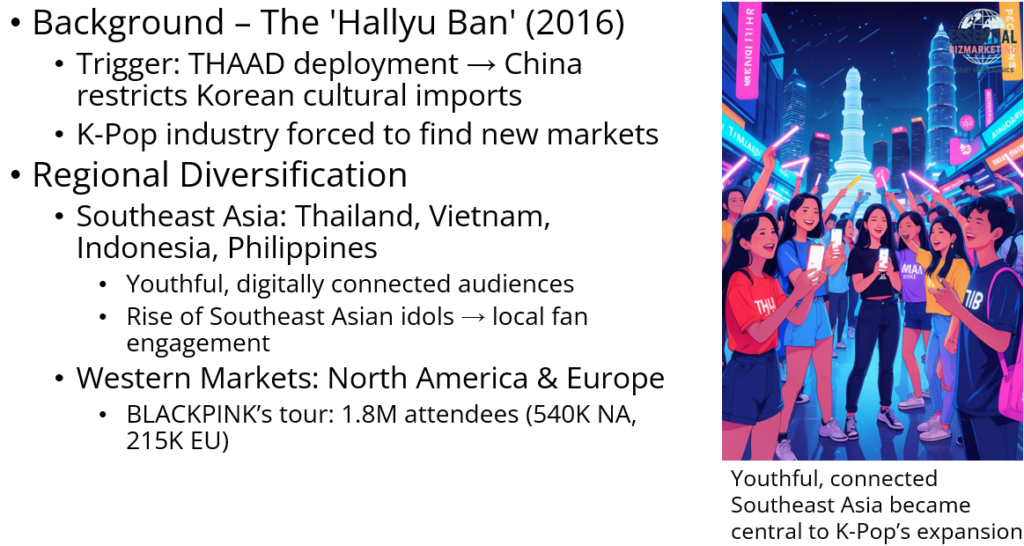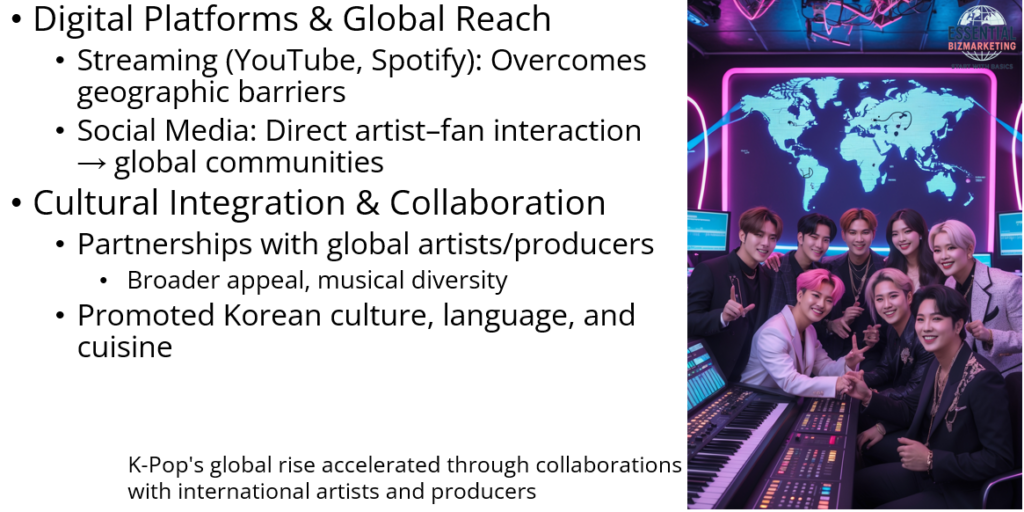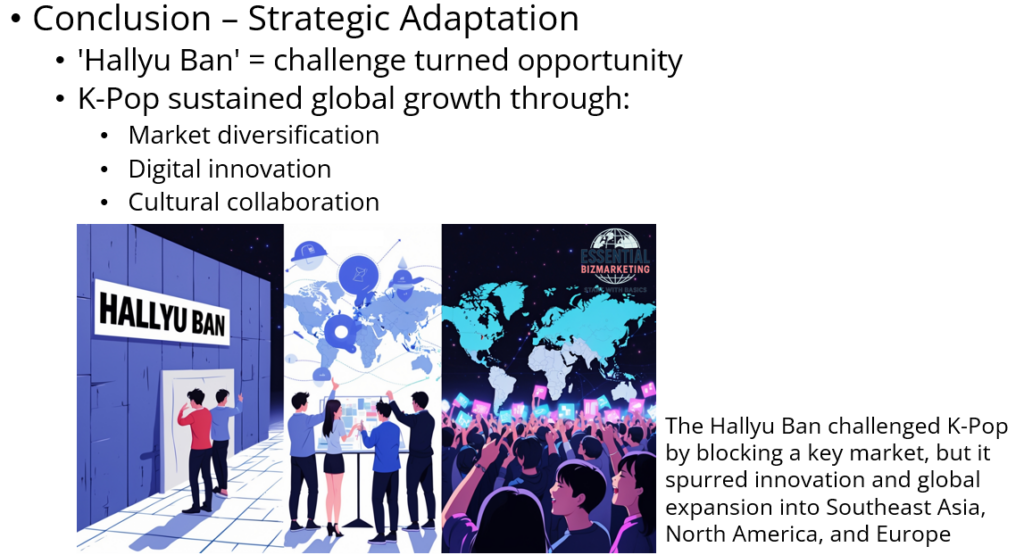Introduction: The Onset of the ‘Hallyu Ban’

In 2016, diplomatic tensions between South Korea and China escalated due to the deployment of the Terminal High Altitude Area Defense (THAAD) system in South Korea. In retaliation, China implemented the ‘Hallyu Ban,’ restricting the import and promotion of Korean cultural products, including K-Pop, within its borders. This sudden policy shift compelled the Korean entertainment industry to reassess its international strategies and seek alternative markets to sustain its growth.
Diversification into Southeast Asian Markets
Southeast Asia emerged as a pivotal region for K-Pop’s expansion efforts. Countries such as Thailand, Vietnam, Indonesia, and the Philippines, with their burgeoning youth populations and increasing digital connectivity, became fertile ground for K-Pop’s influence. The industry’s focus on these markets was further evidenced by the increasing number of Southeast Asian idols debuting in K-Pop groups, fostering a deeper connection with local audiences. This strategic inclusion not only diversified the talent pool but also strengthened fan engagement across the region.
Penetration into North American and European Markets
Beyond Asia, K-Pop agencies intensified efforts to penetrate Western markets, particularly North America and Europe. The genre’s distinctive blend of catchy melodies, synchronized choreography, and high-quality production captivated a global audience. Notably, BLACKPINK’s ‘Born Pink World Tour’ drew 1.8 million attendees worldwide, with significant turnouts of 540,000 in North America and 215,000 in Europe, underscoring the genre’s escalating appeal in these regions.
Leveraging Digital Platforms for Global Reach

The advent of digital platforms played a crucial role in K-Pop’s international proliferation. Streaming services like YouTube and Spotify allowed for the rapid dissemination of content, enabling K-Pop to transcend geographical barriers. Social media platforms facilitated direct interaction between artists and fans, fostering robust global communities. This digital strategy not only maintained existing fan bases but also attracted new listeners worldwide.
Collaborations and Cultural Integration
K-Pop’s integration into the global music scene was further propelled by strategic collaborations with international artists and producers. These partnerships introduced K-Pop to diverse audiences and enriched its musical diversity. Additionally, K-Pop’s influence spurred increased interest in Korean culture, language, and cuisine, exemplifying the broader impact of cultural exchange.
Conclusion: Resilience and Global Adaptation

The ‘Hallyu Ban’ presented significant challenges to the K-Pop industry by restricting access to a major market. However, this adversity catalyzed strategic diversification and innovation, leading to successful market penetration in Southeast Asia, North America, and Europe. By leveraging digital platforms, embracing cultural collaborations, and adapting to diverse market dynamics, K-Pop not only sustained its global presence but also solidified its position as a formidable force in the international music industry.
📚 References
Chartmetric. (n.d.). Why is K-pop popular?. HMC Chartmetric. Retrieved March 25, 2025, from https://hmc.chartmetric.com/why-is-k-pop-popular/
Eater Atlanta. (2024, September 17). How K-pop helped Korean restaurants pop in Atlanta. Eater Atlanta. Retrieved March 25, 2025, from https://atlanta.eater.com/2024/9/17/24246503/korean-restaurants-food-k-pop-atlanta
Yoon, K. (2025, March 21). K-Pop concerts in China could generate significant revenue post-Hallyu Ban. IT Chosun. https://it.chosun.com/news/articleView.html?idxno=2023092136167Chosun
Wikipedia contributors. (2025, March 25). Born Pink World Tour. Wikipedia. Retrieved March 25, 2025, from https://en.wikipedia.org/wiki/Born_Pink_World_Tour
Wikipedia contributors. (n.d.). SM Entertainment. Wikipedia. Retrieved March 25, 2025, from https://en.wikipedia.org/wiki/SM_Entertainment
Wikipedia contributors. (n.d.). YG Entertainment. Wikipedia. Retrieved March 25, 2025, from https://en.wikipedia.org/wiki/YG_Entertainment
📁 Start exploring the Blog
📘 Or learn more About this site
🧵 Or follow along on X (Twitter)
🔎 Looking for sharp perspectives on global trade and markets?
I recommend @GONOGO_Korea as a resource I trust and regularly learn from.
